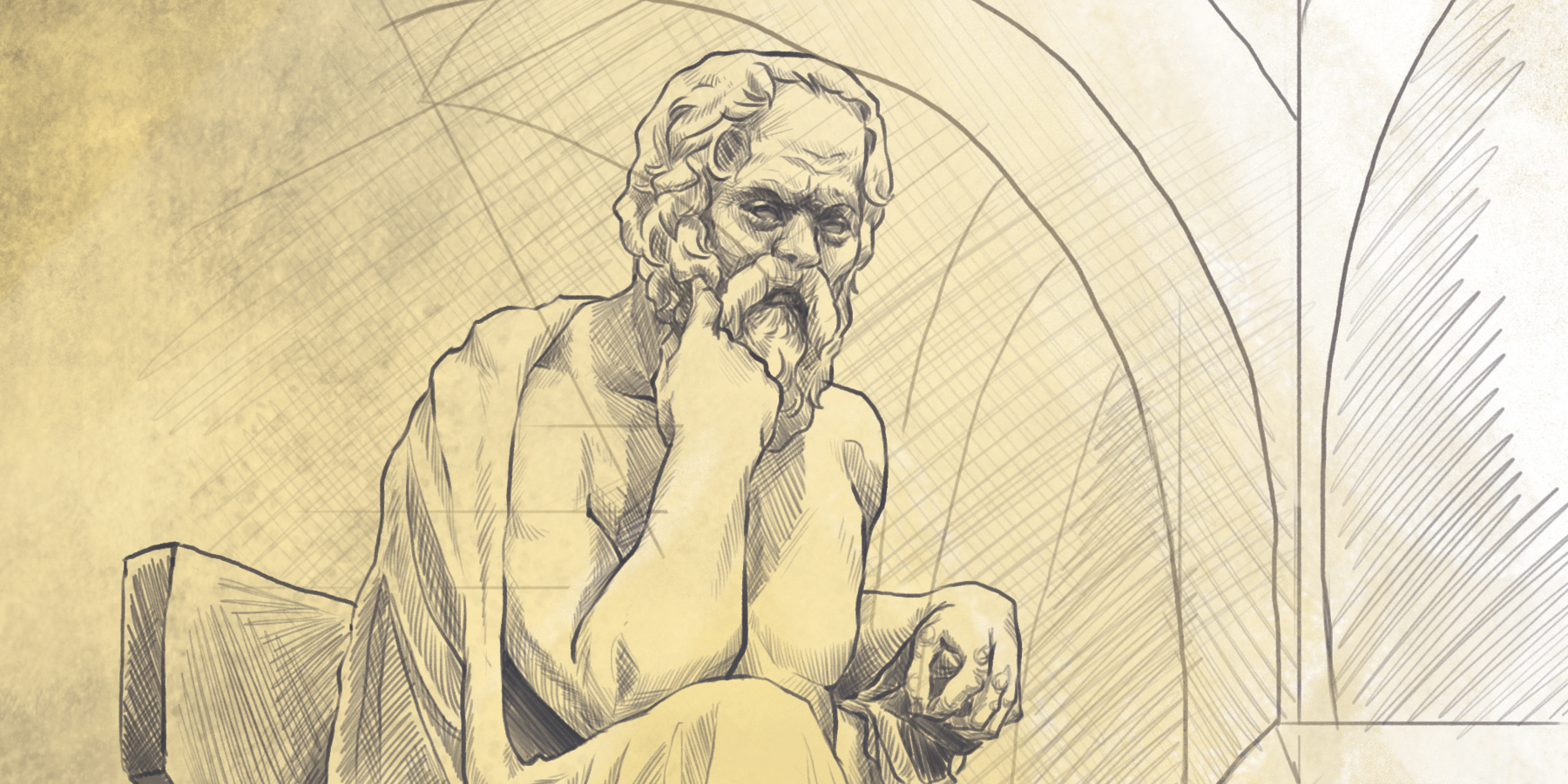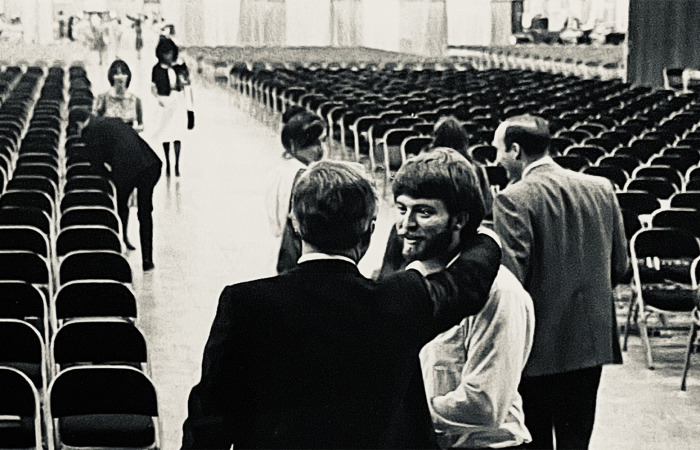We all belong to the question. It haunts us. It possesses us, pressing us toward what we will never achieve: complete knowledge. We crave total eradication of doubt, so we work to force subjugation of all questions to that aim.
No one knew how to do this better than Socrates. After staying long in the shadows, he brought questions into the public square and handed them a megaphone. Socrates made questions the property of the learned elite.
Most modern researchers agree that this ancient educator was something of an enigma, in both philosophy and appearance. Although an Athenian and an academic, he grew long locks like the Spartan soldier. He wore the rumpled, sweaty clothes in which he slept. According to The Stanford Encyclopedia of Philosophy, historians have described him as “profoundly ugly, resembling a satyr more than a man.”
Despite this, Socrates is given a seat of honor in the philosophic pantheon. In the brilliant culture of ancient Greece, a culture that worshipped the pursuit of knowledge, he shocked the entire establishment, flipping current scholastic methodology on its Grecian head. Instead of telling students what to think, he showed them how. He did this by asking questions — public questions — to the complete shock of the intellectual elite.
We dig deeper, we learn more when we are challenged to tame questions for our own benefit. This is what fallen humanity attempts: the conquest of all uncertainty. Socrates championed this quest. “I know you won’t believe me,” writes Socrates, “but the highest form of Human Excellence is to question oneself and others.”
There’s something innate about our need to question and be questioned. We cannot survive without it. Think of all that exists because of the question. Any scientific discovery, any technological advancement, any relationship of depth has occurred because someone asked a question. Both the atomic bomb and the cure for smallpox hinged upon the reality of inquiry. The internet exists because someone asked strategic questions. Literature reflects our connection with inquiry. Plots are driven by the question mark, signaling narrative change like a new wind.
The advent of Jesus introduces a young-yet-ageless rabbi who won’t stop asking.
Christ’s first conversation in Scripture is as pre-teen God. Like all teenagers, he is full of questions for his worried parents, parents who’d spent the better part of two days searching for their missing son. “Why were you looking for me? Didn’t you know that I had to be here, dealing with the things of my Father?” (Luke 2:49)
This first question launches a life of asking. He asks more than 300 questions, recorded by four unique authors. Jesus was never tricked by the serpent’s question. He lives and breathes full trust in God. It is with this perfect trust and his asking that he redeems the effects of the fall, beginning with the heart of it: the question.
His first time speaking with John’s disciples, Jesus introduces himself with a question. He questions the Pharisees and Temple priests. He questions the governing officials. He questions the leper, the beggar, the prostitute. He asks questions from the agony of the Cross. He even asks questions post-Resurrection — many times.
Questions always lead us somewhere. Either they lead to mistrust and doubt, or they lead us to the source of truth. Our mistrust doesn’t frighten Jesus. He not only rescues us from doubt, but He also engages with us in it. He uses questions as instruments — for our healing and for His glory.
Jesus befriends and welcomes the question, and He invites us to do the same.
The road to salvation is paved with questions. It is trod by the Savior-Who-Asks.
It is with asking that He introduces himself to us. It is with asking that He invites us to draw closer. God’s open invitation to know Him stands before us. He wants us to understand why He asks us questions. In this understanding, we can enter into His asking without fear.
The questions that Jesus asked in the Gospels are for us. They speak into the chaotic, world-weary culture in which we live. They were relevant when first asked. They are still relevant today, and they will stay relevant until questions are no longer necessary.
— Illustration by Hannah Barr
 Cara L.T. Murphy is an instructor in the John W. Rawlings School of Divinity, where she inspires students to develop a passion for knowing the God of the Scriptures. She holds a Master of Arts in Religious Studies, specializing in biblical languages. This column is an excerpt from her recent book, “The Inquisitive Christ.”
Cara L.T. Murphy is an instructor in the John W. Rawlings School of Divinity, where she inspires students to develop a passion for knowing the God of the Scriptures. She holds a Master of Arts in Religious Studies, specializing in biblical languages. This column is an excerpt from her recent book, “The Inquisitive Christ.”




